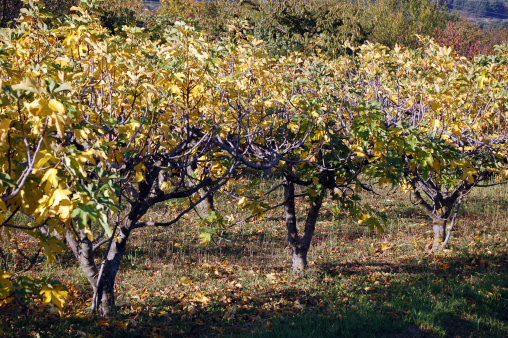
A Story of Stewardship Optimization
Jesus tells a story in Luke 13:6-9 that is as modern as it is ancient. It is a parable about an unfruitful fig tree that contains valuable information about resource management, making hard decisions, and steward leadership. An owner sees a fig tree in his orchard that has never produced fruit and directs his vinedresser to cut it down so that a new tree can be planted in its place. The vinedresser suggests that with additional fertilizer and water, maybe the tree will start producing fruit. But he suggests his plan for only a year’s time and is willing to cut the tree down if it doesn’t work.
The parable assumes that fruit-bearing plants should eventually bear fruit. Even more so, a fruit tree planted in rich soil that remains unfruitful after a reasonable number of years shouldn’t continue to occupy valuable resources (in this case, fertile soil) that could be directed elsewhere. Both the farmer and the vinedresser agree on this. Although the vinedresser is never specifically called a steward, his actions clearly represent stewardship principles and accountability. But what is interesting about Jesus’ parable is that it is the vinedresser—acting in his role as a steward—who suggests a final experiment to help the resource produce fruit. The steward was aware of the master’s ultimate objective—trees should produce fruit—but had a close enough relationship with the master to suggest an alternative path to that objective.
This parable is rich with a number of stewardship principles:
- Principle of growth (or return-on-investment): Resources exist to grow and bear fruit. If this is not occurring, they should be redirected into other areas or applications that will produce growth.
- Principle of optimum investment: Resources sometimes take additional investment or time to produce growth, but there should be a limit to what is invested before growth must occur. Knowing that “investment limit” requires an intimate knowledge of the master’s objectives, of the resources themselves, and of the options available.
- Principle of risk: Sometimes investment in resources will produce growth, and sometimes it will not, but loss can be mitigated through prudent risk. Failure is not necessarily a reflection on the owner or steward and is often nothing more than a natural outcome or risk of managing resources.
- Principle of responsibility: A steward accepts responsibility for achieving the desired results of the owner, for redirecting non-producing resources, and if necessary, for ending non-fruitful investments.
The unfruitful fig tree is a great lesson in steward leadership and identifies a potential blind spot in many contemporary nonprofit leaders. Nonprofit leaders sometimes persist in investing in nonproductive activities under the pretext of mission faithfulness (“we are staying faithful to our mission”) or limited definitions of accomplishment (“if we can only impact just one person, it is still worth it”).
Nonprofits often engage in campaigns, projects, or activities without ever measuring the results or assessing the effectiveness of the resources invested. By doing so they confuse activity with mission, assuming that as long as they are busy doing missional things, the mission is being accomplished. Sometimes the hardest thing for a nonprofit manager to do is to stop resourcing a nonproductive program, to “cut it down,” and redirect the resources, potentially achieving greater growth or “fruit” as a result. Without question, these are hard decisions to make and require a strong understanding of the stewardship role of management.
###
Kent Wilson (PhD) is a leadership coach and nonprofit leadership specialist. After running nonprofit organizations for 30 years, he now serves as an executive coach with Vistage International in Colorado Springs. Kent is the co-founder of the Steward Leader Initiative, and program manager for the Christian Leadership Alliance Leader2Leader Experience.
 Christian Leadership Alliance is offering Facilitator Training for anyone interested in leading a Leader2Leader peer advisory group, November 15 – 16, 2014 in Dallas, TX. Email Kent Wilson at Kent.Wilson@ChristianLeadershipAlliance.org for details.
Christian Leadership Alliance is offering Facilitator Training for anyone interested in leading a Leader2Leader peer advisory group, November 15 – 16, 2014 in Dallas, TX. Email Kent Wilson at Kent.Wilson@ChristianLeadershipAlliance.org for details.

What is Christian Leadership Alliance?
Christian Leadership Alliance equips and unites leaders to transform the world for Christ. We are the leaders of Christ-centered organizations who are dedicated to faithful stewardship for greater kingdom impact.
Sign up for FREE blog updates.
Upcoming Events
Check back later!



